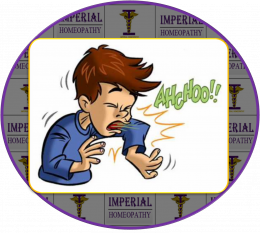What is Allergic
Rhinitis?
As the name suggests it is an allergy to certain allergens found
in the atmosphere. It is also known as Pollinosis or Hay fever.
People having low immunity level are prone to this
condition. Dust, fungus/mould, smoke, pollens, cloth fibers, pet hairs
are some of the triggering factors.
Around the world about 30-40% of the population are suffering
with Allergic Rhinitis.
How Allergic Rhinitis develops
Our body has defensive bodies such as Antibodies. IgE
antibodies attack the allergens and thus release chemical known as Histamine
and this chemical in turn causes Allergic Rhinitis which may have symptoms like
runny nose, redness of eyes, itching of eyes, and frequent sneezing with
associated headaches.
Causes of Allergic Rhinitis
1.
Dust/smoke- Presence of certain harmful
chemicals in the environment and the smoke can cause Allergic Rhinitis.
2.
Fungus/Mold- Fungus or mold present in
ones house can cause Allergic rhinitis.
3.
Cloth fibers- Inhalation of cloth fibers
like fibers present in curtains, bedsheet/pillow covers etc.
4.
Pet hair- Presence of pet at home can cause
the condition. Inhalation of pet hair can lead to Allergic Rhinitis.
5.
Fragrances of certain plants, flowers, and
deodrants can be one of reasons of Allergic Rhinitis.
6.
Pollens (certain plants/weeds/grass pollens
cause Allergic Rhinitis)
Symptoms of Allergic Rhinitis
1.
Watery discharge from the nose (Runny nose) or
blocked nose.
2.
Redness of eyes.
3.
Itching of eyes.
4.
Swelling of the eyelids (upper and lower).
5.
Headaches can be associated.
6.
Frequent sneezing.
7.
In severe condition, there is swelling of the
nasal mucosa and middle ear infection.
Diagnosis of Allergic Rhinitis
1.
The most common test of Allergic Rhinitis is
Skin prick test. Here after the test a red bump appears on the skin
surface in case of allergy to a particular substance.
Another test of Allergic Rhinitis is RAST (Radioallergosorbent
Test). This actually detects and counts the amount of immunoglobulin E
(IgE) present in ones blood for a particular allergen.
Prevention of Allergic Rhinitis
If you know your sensitivity towards a particular allergen then
you can avoid it. For example if you are sensitive to dust and mold then
avoid it by using a mask while you are out. Keep the house clean from
dust and mold.
Seasonal pollens are affecting you then avoid going out during
that particular time or use mask.
Avoid particular fragrances and deodorants which you are
sensitive to.
Treatment of Allergic Rhinitis
1.
Antihistamines- The commonest treatment for
Allergic Rhinitis.
2.
Immunotherapy is another treatment.
3.
Nasal drops and eye drops are also available
in market (over-the-counter) to relieve the symptoms like runny nose or stuffy
nose and redness or itching of eyes respectively.
4.
Steroids are also one of the treatments of
Allergic Rhinitis.
Homeopathic Treatment
for Allergic Rhinitis
Homeopathic treatment is quite effective in Allergic Rhinitis
condition. It removes the over sensitivity towards a particular allergen
and thus decreases the recurring episodes of Allergic rhinitis.
It helps in reducing the dependency on antihistamins ,
antibiotics, steroids and thus helps in reducing the chances of side effects
caused by these medicines.
Treatment may vary depending upon the chronicity and severity of
the case. It also helps in permanent cure without any recurrence of the
disease.

